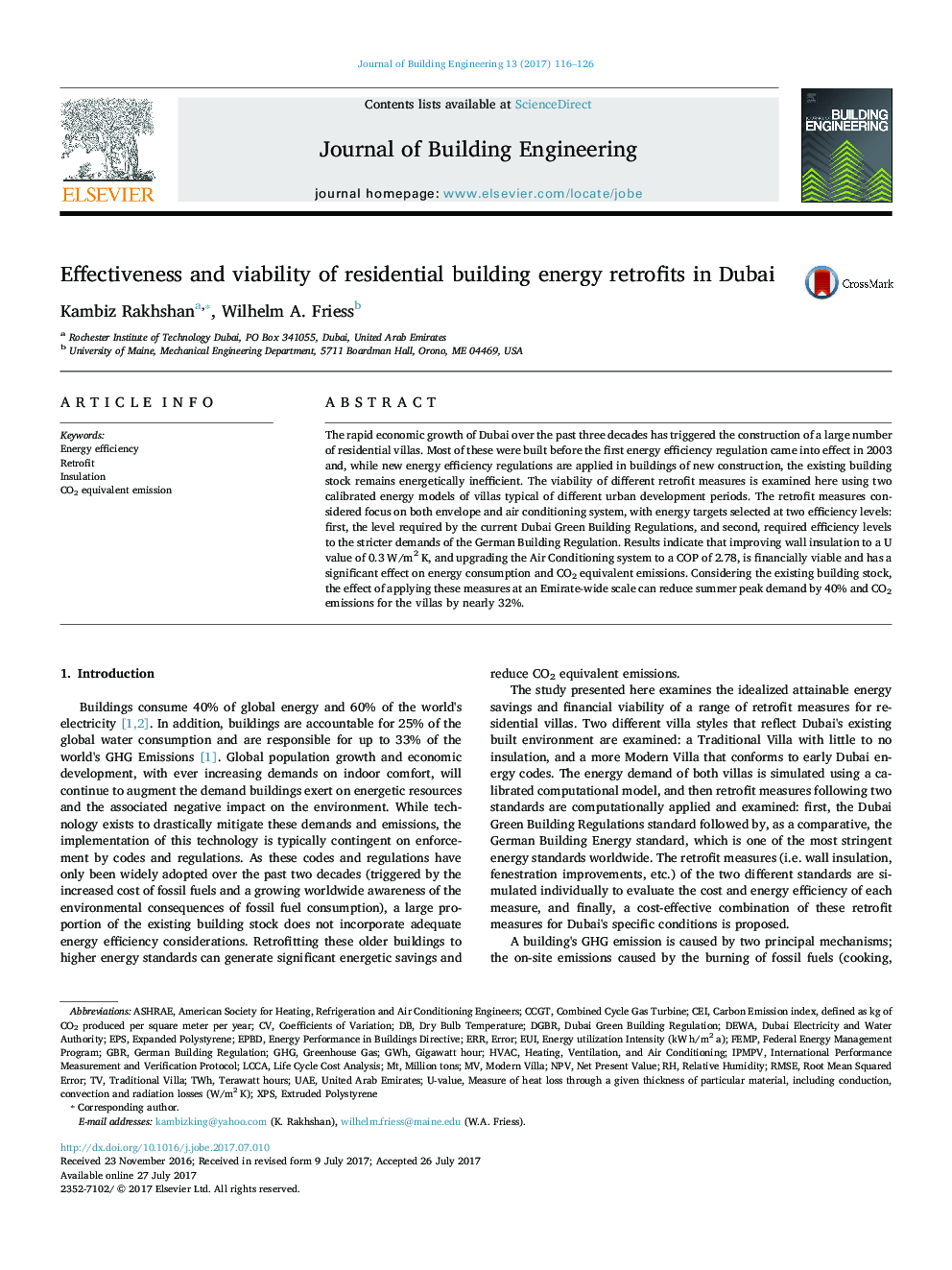| Article ID | Journal | Published Year | Pages | File Type |
|---|---|---|---|---|
| 4923061 | Journal of Building Engineering | 2017 | 11 Pages |
Abstract
The rapid economic growth of Dubai over the past three decades has triggered the construction of a large number of residential villas. Most of these were built before the first energy efficiency regulation came into effect in 2003 and, while new energy efficiency regulations are applied in buildings of new construction, the existing building stock remains energetically inefficient. The viability of different retrofit measures is examined here using two calibrated energy models of villas typical of different urban development periods. The retrofit measures considered focus on both envelope and air conditioning system, with energy targets selected at two efficiency levels: first, the level required by the current Dubai Green Building Regulations, and second, required efficiency levels to the stricter demands of the German Building Regulation. Results indicate that improving wall insulation to a U value of 0.3Â W/m2Â K, and upgrading the Air Conditioning system to a COP of 2.78, is financially viable and has a significant effect on energy consumption and CO2 equivalent emissions. Considering the existing building stock, the effect of applying these measures at an Emirate-wide scale can reduce summer peak demand by 40% and CO2 emissions for the villas by nearly 32%.
Keywords
CCGTGBRERRLCCAEPSCEIRMSEGHGASHRAEtWHInternational Performance Measurement and Verification ProtocolEPBDEUIGWHU-valuenet present valueUnited Arab EmiratesUAERetrofitEnergy efficiencyLife cycle cost analysisHVACCombined cycle gas turbineErrorDry bulb temperatureRelative humidityroot mean squared errorcoefficients of variationXPSInsulationNPV یا negative predictive valuemillion tonsExpanded polystyreneExtruded polystyreneGreenhouse gasheating, ventilation, and air conditioningGigawatt hour
Related Topics
Physical Sciences and Engineering
Engineering
Civil and Structural Engineering
Authors
Kambiz Rakhshan, Wilhelm A. Friess,
